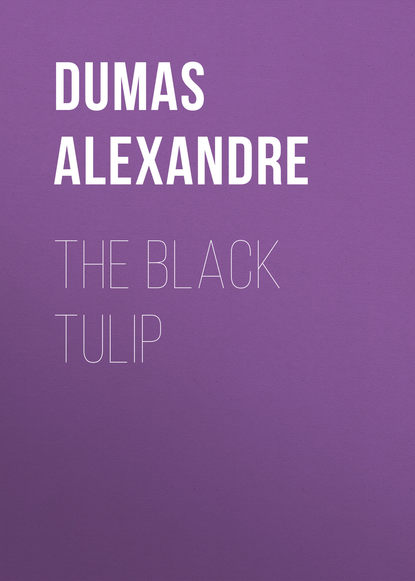По всем вопросам обращайтесь на: info@litportal.ru
(©) 2003-2024.
✖
The Black Tulip
Настройки чтения
Размер шрифта
Высота строк
Поля
Rosa pushed the table, Cornelius placed the broken arm on it so as to make it flat, and with perfect skill set the bone, adjusted the splinters, and fastened the bandages.
At the last touch, the jailer fainted a second time.
“Go and fetch vinegar, mademoiselle,” said Cornelius; “we will bathe his temples, and he will recover.”
But, instead of acting up to the doctor’s prescription, Rosa, after having satisfied herself that her father was still unconscious, approached Cornelius and said, —
“Service for service, sir.”
“What do you mean, my pretty child?” said Cornelius.
“I mean to say, sir, that the judge who is to examine you to-morrow has inquired to-day for the room in which you are confined, and, on being told that you are occupying the cell of Mynheer Cornelius de Witt, laughed in a very strange and very disagreeable manner, which makes me fear that no good awaits you.”
“But,” asked Cornelius, “what harm can they do to me?”
“Look at that gibbet.”
“But I am not guilty,” said Cornelius.
“Were they guilty whom you see down there gibbeted, mangled, and torn to pieces?”
“That’s true,” said Cornelius, gravely.
“And besides,” continued Rosa, “the people want to find you guilty. But whether innocent or guilty, your trial begins to-morrow, and the day after you will be condemned. Matters are settled very quickly in these times.”
“Well, and what do you conclude from all this?”
“I conclude that I am alone, that I am weak, that my father is lying in a swoon, that the dog is muzzled, and that consequently there is nothing to prevent your making your escape. Fly, then; that’s what I mean.”
“What do you say?”
“I say that I was not able to save Mynheer Cornelius or Mynheer John de Witt, and that I should like to save you. Only be quick; there, my father is regaining his breath, one minute more, and he will open his eyes, and it will be too late. Do you hesitate?”
In fact, Cornelius stood immovable, looking at Rosa, yet looking at her as if he did not hear her.
“Don’t you understand me?” said the young girl, with some impatience.
“Yes, I do,” said Cornelius, “but – ”
“But?”
“I will not, they would accuse you.”
“Never mind,” said Rosa, blushing, “never mind that.”
“You are very good, my dear child,” replied Cornelius, “but I stay.”
“You stay, oh, sir! oh, sir! don’t you understand that you will be condemned to death, executed on the scaffold, perhaps assassinated and torn to pieces, just like Mynheer John and Mynheer Cornelius. For heaven’s sake, don’t think of me, but fly from this place, Take care, it bears ill luck to the De Witts!”
“Halloa!” cried the jailer, recovering his senses, “who is talking of those rogues, those wretches, those villains, the De Witts?”
“Don’t be angry, my good man,” said Cornelius, with his good-tempered smile, “the worst thing for a fracture is excitement, by which the blood is heated.”
Thereupon, he said in an undertone to Rosa —
“My child, I am innocent, and I shall await my trial with tranquillity and an easy mind.”
“Hush,” said Rosa.
“Why hush?”
“My father must not suppose that we have been talking to each other.”
“What harm would that do?”
“What harm? He would never allow me to come here any more,” said Rosa.
Cornelius received this innocent confidence with a smile; he felt as if a ray of good fortune were shining on his path.
“Now, then, what are you chattering there together about?” said Gryphus, rising and supporting his right arm with his left.
“Nothing,” said Rosa; “the doctor is explaining to me what diet you are to keep.”
“Diet, diet for me? Well, my fine girl, I shall put you on diet too.”
“On what diet, my father?”
“Never to go to the cells of the prisoners, and, if ever you should happen to go, to leave them as soon as possible. Come, off with me, lead the way, and be quick.”
Rosa and Cornelius exchanged glances.
That of Rosa tried to express, —
“There, you see?”
That of Cornelius said, —
“Let it be as the Lord wills.”
Chapter 11. Cornelius van Baerle’s Will
Rosa had not been mistaken; the judges came on the following day to the Buytenhof, and proceeded with the trial of Cornelius van Baerle. The examination, however, did not last long, it having appeared on evidence that Cornelius had kept at his house that fatal correspondence of the brothers De Witt with France.
He did not deny it.
The only point about which there seemed any difficulty was whether this correspondence had been intrusted to him by his godfather, Cornelius de Witt.
But as, since the death of those two martyrs, Van Baerle had no longer any reason for withholding the truth, he not only did not deny that the parcel had been delivered to him by Cornelius de Witt himself, but he also stated all the circumstances under which it was done.

















